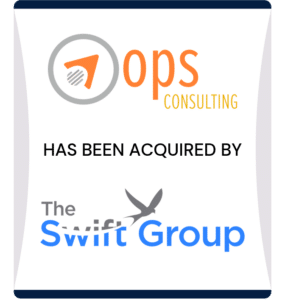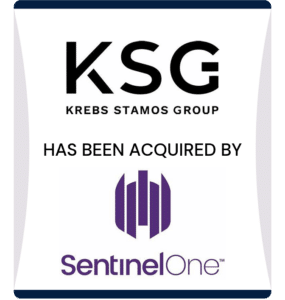Government IT Services Sector M&A Update – July 2024

Government IT Services Sector M&A 2023 Year in Review and Outlook
Skillful pilots gain their reputation from storms and tempest.
Technology Disruption, Evolving Missions, and Budget Priorities
Upon concluding the past two years of historic merger and acquisition (M&A) activity in Government Services and information technology (IT), the question on our collective minds was what kind of landing we would witness in 2023. As the Federal Reserve took dramatic action to battle persistent inflation in the face of resilient consumer demand, industry executives worked diligently to complete strategic planning activities already underway. Once the market settled into the new capital environment, familiar political challenges reemerged, driven by looming electoral considerations, and real questions arose about how the year might unfold.
As a result, we did see a dampening of activity at the top end of the market in 2023, with just two transactions eclipsing $1 billion in value, both announced in November. Of note, one of the deals was portfolio shaping as Jacobs (NYSE:J) spun off its National Security business to merge with Amentum (November 2023, undisclosed). Additionally, Veritas sold Guidehouse to Bain Capital (November 2023, $5.3 billion) though the second deal featured a substantial private sector business. It is little wonder then, that Capstone’s public U.S. Government IT Services index underperformed the S&P 500 over the past five quarters as earnings across broader sectors consistently beat expectations.
As advisors to entrepreneurs in the government services middle market, Capstone is naturally drawn to narratives of innovation springing from the hidden corners of the industry, and our clients punch way above their weight consistently. Looking back on the year, we cannot help but be impressed with the resilience of the industry in the face of multiple exogenous shocks: (i) spiking interest rates, (ii) a broken budgeting and procurement system complete with multiple continuing resolutions to go along with multiple threats of a government shutdown, and (iii) a political fracture so profound that it calls into question the prioritization of critical national security interests. And while public investor returns were disappointing, current fundamentals indicate optimism for the near-term.
Wading into this morass, dozens of privately owned and operated businesses went about the daily work of delivering exceptional value to forward leaning government executives, establishing enduring partnerships that have transformed the way citizens engage with a rapidly evolving technological landscape. The national security community, civilian agencies, and increasingly well-funded state and local governments have deepened commitments to modernization and transformation, driven by the trends discussed in these pages over the last several quarters. This includes the advent of highly customized software automation; machine learning (ML) coupled with next generation data science; condensed development lifecycles and nimble Software-as-a-Service (SaaS) business models; and efficiencies through cloud migration. Support to the Intelligence and Cybersecurity mission areas remained, as ever, fertile soil for creative problem solving.
Despite uncertainty surrounding the legislature, the Biden Administration has been steadfast in its support of critical IT modernization. Federal IT spending is forecasted to grow from $116.4 billion in fiscal year (FY) 2023 to $137.5 billion in FY 2027, a 4.3% annual growth rate, according to Deltek.1 Congress has avoided the disaster scenario of successive continuing resolutions and deficit showdowns during an election year, though much work remains to be done to smooth out federal capital planning. The outlook for state and local markets has been more depressing, with analysts predicting divestment as stimulus era grant funding dries up. Capstone sees things a bit differently, however, as modernization and digital transformation have taken hold; leading state chief information officers (CIOs) have been devising unique methods of self-funding critical investments in digitization and citizen engagement.
The Biden Administration’s $6.95 trillion FY 2025 budget request unveiled this past month deepens generational investments for defense, national security, and civilian agencies. The defense request includes $17.2 billion for science and technology, $1.8 billion for artificial intelligence (AI), $1.4 billion for joint command and control, $450 billion for the Rapid Defense Experimentation Reserve, and $14.5 billion for cyber activities, according to the Office of the Under Secretary of Defense’s budget documents.2 The request funds intelligence activities with $73.4 billion for the National Intelligence Program (NIP), a $1 billion increase year-over-year (YOY), and $28.2 billion for the Military Intelligence Program (MIP).
On the civilian side, the budget request prioritizes the responsible development of AI technologies ($3 billion), enhances the development of the semiconductors and technology landscape ($20 billion), strengthens cybersecurity capabilities across civilian agencies ($13 billion, including an increase of $103 million for the Department of Homeland Security (DHS) and Cybersecurity and Infrastructure Security Agency (CISA)), and continues systems modernization (adding $75 million to the no-year money Technology Modernization Fund).
Middle Market M&A: Activity Moderating
Entering 2023, industry watchers ruminated on a steep drop in M&A activity from the record levels of dealmaking witnessed in 2021 and 2022. While specific tectonic shifts drove activity during this historic period, this past year indicated what a “new normal” might look like. As it turned out, buyer and sellers of well-positioned government services businesses closed 91 transactions in the subsector, marking a 18.8% decline from 2022.
While the year started off slowly, industry executives and investors recalibrated amid the new capital environment and assessed the tangible impact of developments within both political parties. By the summer we saw activity near the levels of the previous year, a remarkable feat given sector headwinds, and explained both by evolution in the buyer community and the successes exhibited by well-positioned private businesses operating in the slipstream of high priority government initiatives.
For several years there has been a focus on small but rapidly growing subsegments within a very large market, characterized by low growth (and sometimes forced into contraction by fiscal vagaries). As a result, this past year saw an extraordinary increase in the number of transactions featuring highly specialized companies built to pursue these high priority missions with customized solutions and unique capabilities.
Examining the transactions consummated in core capability areas, close to a third featured scaled firms providing a range of IT, engineering, and technical services. However, the reckoning forced by rapid software development, its ability to automate discrete government activities, increasing acceptance of SaaS business models, and an attendant talent gap, drove transactions featuring software development and engineering to account for 19% of deals announced or completed in 2023. Demand for leading cybersecurity and cyber operations, long an emphasis for defense and intelligence agencies, has bled across the sector, accounting for 18% of the transactions over the period.
The pressing demand for systems modernization sustained demand for bespoke cloud architecture and migration while the promise of enhanced data analytics and automation highlighted interest for firms with unique capabilities in these areas (14% of deals announced or closed). In the Intelligence market, long a breeding ground for innovative solutions and nimble contractors, transactions have increasingly featured a combination of next generation technologies with rapidly evolving mission requirements, accounting for 15% of the transactions closed. The increasing specialization of high value M&A targets is certainly on display in Capstone’s own featured transactions in the space over the year, which are highlighted below.
When we analyzed deals by buyer type, we were frankly a bit surprised to see so much activity by both private equity and diversified strategic acquirers from outside the industry. Private equity, if we include both direct buyouts and private equity platform companies accounted for 44% of the transactions over the past five quarters, while diversified tech companies buying into the government sector another 13%, much of this driven by regional players buying capabilities in the maturing state and local tech markets, a trend Capstone is leaning into heavily. The activity of these groups is a big reason we did not see total volume decline as many had anticipated as the strategic buyers stepped back to digest the record acquisitions of the past two years.
Specialized private equity groups dedicated to the sector were particularly active in 2023, closing transactions directly and through existing platforms. These firms have exhibited a long view toward the capital markets and in many cases have over-equitized attractive deals with an eye towards optimizing the balance sheets post-closing. Of note, Enlightenment Capital seemed to be everywhere, closing four transactions, including Revacomm via Intellibridge (November 2023, undisclosed), and Secure Innovations (June 2023, undisclosed) and Innoplex (May 2023, undisclosed) via iNovex. Arlington Capital was also active with three transactions including Systems Planning and Analysis’ purchase of ManTech’s Technology Advisory business (March 2024, undisclosed). In addition to selling the Guidehouse platform, Veritas Capital acquired Strategic Technology Consulting via its portfolio company Arcfield (August 2023, undisclosed). Oceansound Partners’ SMX acquired Outside Analytics (November 2023, undisclosed) and then was recapitalized with funds from Apollo S3. Madison Dearborn Partners acquired T2S (November 2023, undisclosed) and its Linquest platform acquired Hellebore Consulting (January 2023, undisclosed) and CAMO (February 2023, undisclosed) earlier in the year. Bluestone Investment Partners portfolio companies acquired two businesses; cBEYONData bought Summit2Sea (February 2023, undisclosed) and Gap Solutions acquired KeyLogic Systems (November 2023, undisclosed). Notable among active strategic buyers were Parsons’ (NYSE:PSN) acquisitions of Sealing Technologies (August 2023, $204.3 million) and IPKeys (April 2023, $43.4 million), and Tetra Tech’s (Nasdaq:TTEK) acquisitions of Amyx and LS Technologies.
Another trend that bears watching has been an increasingly active group of Native American-owned businesses. These organizations, of course, can pursue unique contract vehicles, and have been several aggressive acquirers diversifying their portfolios. This past year saw Diné Corporation acquire Capstone-advised SpinSystems (December 2023, undisclosed), ASRC Federal acquire Broadleaf (April 2023, undisclosed), and Chugach Government Solutions acquire Vector Planning & Services (April 2023, undisclosed).
2024 Government IT Services Sector M&A Outlook: Headwinds Meet Fast Currents
After much budget brinkmanship and four continuing resolutions, U.S. Congress passed funding measures sufficient to fund the government through the end of the current FY. Left wide open, however, is how much progress the legislature will make on FY 2025 given the deep divisions within both the House and Senate, coupled with the pressures of an election year. The inability to fund critically urgent national security needs with wide, even bipartisan, support (aid to the states of Ukraine and Israel) has not provided much comfort. Available federal support for state and local investments will likely continue to diminish. Given these headwinds, it is reasonable to anticipate further moderation in the sector. However, Capstone remains confident that well-positioned private businesses with differentiated capabilities in high demand mission areas will continue to garner attention from a mature group of committed acquirers and investors. Indeed, as of this writing, Capstone’s team of Government IT Services sector bankers is orchestrating four active processes, all of which speak to the trends outlined here: state IT modernization, digitization and identity management, high value facility security services, highly customized software development, data-driven decision-making and automation, and medical simulation and training software with defense applications. The response from friends and colleagues in the industry has been robust and the projects hold the promise of industry leading valuations, even in the current environment.
To discuss Government IT Services Sector M&A, provide an update on your business, or learn about Capstone's wide range of advisory services, please contact us.
Endnotes
-
Deltek, “Federal IT Market,” https://iq.govwin.com/neo/marketAnalysis/view/Federal-IT-Market--2023-2027/61262?researchTypeId=2&researchMarket, accessed April 19, 2024.
-
U.S. Department of Defense, “United States Department of Defense Fiscal Year 2025 Budget Request,”https://comptroller.defense.gov/Portals/45/Documents/defbudget/FY2025/FY2025_Budget_Request_Overview_Book.pdf, accessed April 19, 2024.
Related Transactions
Insights for Middle Market Leaders
Receive email updates with our proprietary data, reports, and insights as they’re published for the industries that matter to you most.










